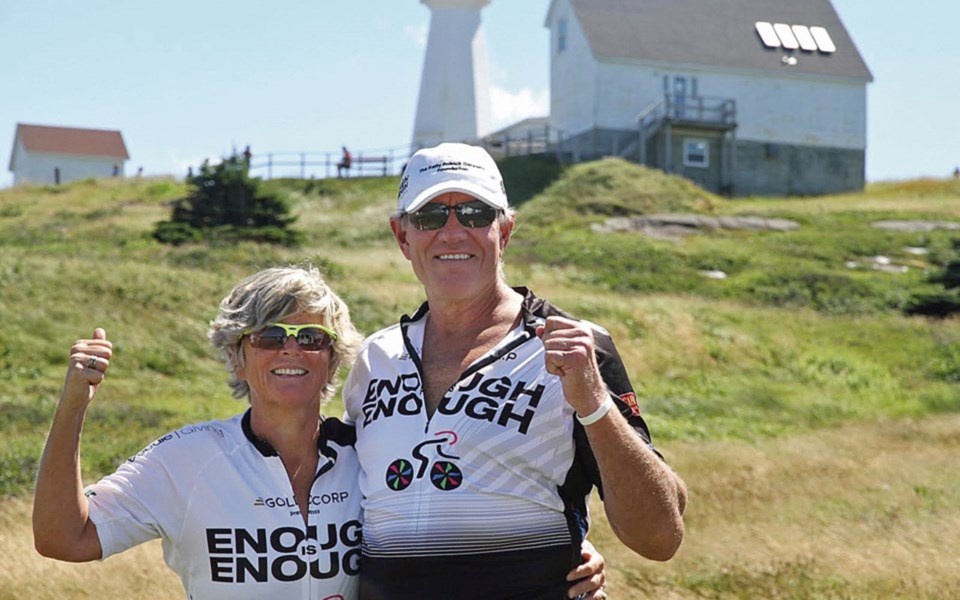For as much fundraising as Whistler’s Kelty Patrick Dennehy Foundation (KPDF) has done for youth mental health over the years (more than $7 million and counting), the need for resources has only been exacerbated as the COVID-19 pandemic wears on.
“We’re still keeping our little fingers in different things, not doing as much fundraising and everything as we did before, but we’re still very active and still very involved,” said Ginny Dennehy, director of the KPDF.
“It’s important to help these people, because unfortunately, mental health issues are not going away. They are still here, and we’ve seen more of them during this really terrible COVID time.”
Compounding the struggles for the KPDF are limitations on gatherings, which have hindered its ability to fundraise—which is why Dennehy is fortunate for an unexpected partnership with Richmond fish supplier Organic Ocean Seafood Inc.
After Dennehy reached out to the company on a whim, it agreed to donate 10 per cent of proceeds (if ordered through the URL organicocean.com/kelty-foundation) for the months of February, March and April.
“I just thought it was a neat story, because it just shows how, during these COVID times, people are helping each other,” Dennehy said.
“We can’t go out and do big fundraising events or anything like that, but this is a way that we can raise money and make a difference to our community, so I think it’s all good.”
Organic Ocean Seafood’s past charitable efforts have mostly been in the realm of donating food, said CEO Guy Dean, adding that he was struck by the Dennehys’ “heart-wrenching” story after Ginny reached out (read more at thekeltyfoundation.org).
“For me it was more just about contributing back to a real solid charitable organization that really could use our help,” he said.
“Hopefully we can make a small contribution or a difference for them.”
As it relates to Whistler’s youth, Jackie Dickinson, executive director of the Whistler Community Services Society, evoked one of Canada’s preeminent children’s entertainers.
“The line from Raffi is ‘the more we get together, the happier we’ll be,’ and we can’t do that,” she said.
“We can’t tell our kids to do something that is so basic to their mental wellbeing, because of the risk it can pose for other things, and it’s the right message right now. We can’t get together, but we can understand why kids, now almost a year in, are challenged.
“It absolutely is having an impact on the mental health and wellbeing of all family systems and kids of all ages.”
Meanwhile, a new project from the Whistler Blackcomb Foundation (WBF, with funds from the Katz Amsterdam Foundation) aims to streamline mental health resources in the Sea to Sky corridor.
“This need for one centralized ‘hub,’ which caters specifically to Sea to Sky Corridor residents, was something that was identified after we did our mental health survey in the summer,” said WBF executive director Mei Madden, in an email.
“The number of resources can be overwhelming for those in need and we wanted to try and make it easier and more specific for our local communities.”
Not yet ready for primetime, the website will go live next month at seatoskysafetynet.com.
“In a nutshell, Sea to Sky Safety Net is an online navigation tool that emerged out of a need to increase awareness around local mental health and substance-use support services; inspire proactive health seeking behaviours; and address barriers to access,” Madden said.
“We all have mental health that needs nurturing and together we can work toward building a strong foundation of community support and resiliency.”




